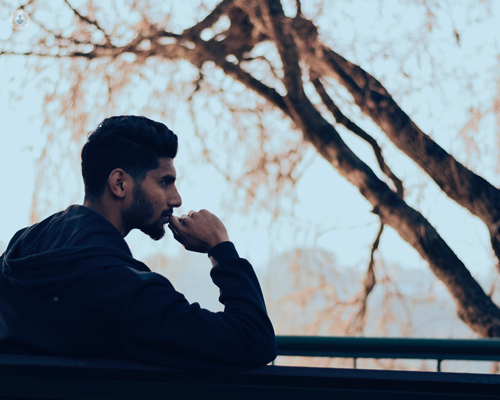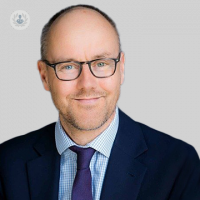Testicular pain: when to see a specialist
Written by:When pain in the testicles becomes an ongoing issue, it may be time to see a doctor. Leading senior urology consultant Mr Andrew Ballaro advises on chronic testicular pain and what to do if you experience it.

What is considered chronic testicular pain?
Chronic testicular pain is discomfort perceived to originate from the scrotum that has lasted over three months and interferes with daily living enough for the patient to seek treatment. The pain can be intermittent or constant, and is usually described as a dull ache but can also be a dragging, burning or sharp sensation.
What are the most common causes of testicular pain?
There are many causes of testicular pain such as:
- Infections
- Post-traumatic reactions
- Post-surgical reactions
- Varicocele
In addition, cysts and tumours can cause testicular pain. Conditions arising outside of the scrotum such as prostate and bladder problems, or kidney stones, can create problems, too. We find no clear cause in up to half of patients.
When should I see a doctor about testicular pain?
You should see a doctor about testicular pain if it occurs very suddenly and is severe. In which case, a twisted testicle may have occurred so the accident and emergency department is the best place to go. For chronic pain, you should see a doctor if it has not responded to pain killers and is interfering with activities in your daily life. You should also see a doctor if you find any new lumps in the scrotum.
Can testicular pain be a medical emergency in some cases?
Sudden onset testicular pain may be caused by testicular torsion, which is an emergency and requires urgent surgical treatment. Torsion is more likely in younger men and boys but can occur in middle age.
How can I relieve testicular pain at home?
Testicular pain sometimes requires no treatment and will go away on its own. If the pain is a mild, dull ache, the testicle is not tender to touch and feels normal with no swelling, it is reasonable to take over the counter pain relief for a few days, which often settles it.
How long does testicular pain take to alleviate?
Chronic testicle pain with no cause can take many months to settle.
When might treatment be necessary?
Treatment is necessary when a reversible cause for the pain is found. In addition, chronic pain with no cause often responds well to a specific type of painkiller only available on prescription, which targets the nerves responsible for chronic pain pathways.
As a last resort, operations can be performed to strip the nerves causing the pain from the testis and testicular removal may also help.
If you’re concerned about chronic testicular pain or related issues, get in touch with Mr Andrew Ballaro for expert advice. Visit his Top Doctors profile here.


